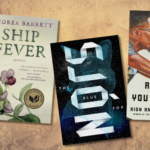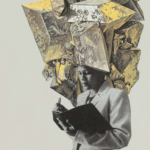
How to Cure a Reading Slump
I wouldn’t have dedicated my free time to writing for a literary site, much less moved my life from Los Angeles to Portland for a full-time job working on the editorial team for that site, if I didn’t have a deep and enduring passion for books and reading. But there is a difference between reading for yourself and reading for work, and I’d never experienced spells where I felt outright resistance to consuming literature the way I occasionally do as a professional reader. Or maybe long dry spells where I didn’t pick up a book simply felt less fraught and laden with consequences when I didn’t have to, say, read for a podcast. Back in the day, reading was a beloved hobby, and nobody counted on me to keep up with books. Nowadays, I have to strategize to defend myself and my work life against a problem we all face.
I’m talking about reading slumps. They happen to the best of us. Even if bookishness is part of your identity, you’re a book influencer, or you have too many books waiting on your shelves and in your TBR to stop reading, you are susceptible to that virus that forms a knot of dread in your stomach when you face your own bookshelves.
Over the past 7+ years of my career as both a freelancer and staffer here at Book Riot, through trial and error, I’ve had to find prescriptions against this affliction that work for my lifestyle and my brain. These are the big moves I confidently turn to in times of need:
Be Quick to DNF
I used to feel like a quitter when I DNFed books, especially if they came highly recommended or were considered must-reads of my genre specialty. That feeling is long gone. There are too many books with too much potential for enjoyment out there in the world to fret over one or a hundred titles. I started this year with a bang after a lengthy end-of-2022 slump simply by quitting books that didn’t grab my attention after a couple of pages. When I force myself to plod through a large chunk of a book before calling it quits, I find I have little energy or hope for a next read. Reading a much smaller amount of a dud does wonders for preserving that energy for the next book, and I’m happy to report that I have yet to fall into an inexorable void where I didn’t eventually pick up a book that gripped me.
Minimize Obligatory Reading
On some level, obligatory reading comes with my profession—sometimes I need to read books that fit a certain theme or are pertinent to work in some way. So I’ve had to get creative with this strategy and another coming up here. There’s a reason I don’t join book clubs outside of one-time, impromptu setups at home or at work. I also don’t participate in reading challenges. I have loose, personal reading goals, but I know my own habits well enough to be certain I wouldn’t get through that list or those book club books and would be hindered by feelings of guilt when I inevitably found myself straying to books outside of the assignment. Being able to read on my own terms as often as I can keeps the act of reading from feeling like a chore and gives me a tad more flexibility to seek out books I crave in the moment.
Read Short Works
I love novellas. 1) There are so many good ones out there, and 2) I get to enjoy the thrill of finishing a book that much faster. When the idea of committing to a book for weeks feels too daunting, short works always come through. Lately, I’ve been relishing short story collections in addition to novellas. I don’t have to read a short story collection or anthology front to back, and I can put it down and pick something else up if the spirit moves me without having to worry about losing the thread when I return. They’re also great palate cleansers when you’re still enjoying your book but need a brief change of scenery that’ll get you excited about returning to your big read.
Try Different Formats
I’d be screwed if not for audiobooks. Without them, my end-of-year reading list would be measly and pathetic. This is mostly because I have a hard time sitting quietly and reading. It used to be my favorite thing to do, but that was when I didn’t have a dozen tasks on my personal to-do list each day. Without audiobooks, I would be cursed with life-induced reading paralysis. With audiobooks, I can read through most chores, which has the added benefit of making that chore more enjoyable. I also find that having access to different formats in general appeals to my brain’s craving for variety.
I’ve fallen into reading slumps simply because I didn’t want to sit down and thumb through a book when I had a million things to do, and because I didn’t want to stare at pages on my screen after a full day in front of the computer. Maybe you don’t want something in your ears and the tactile sensation of turning a page gets you going—mix it up and find the format that’ll keep you reading.
Surprise Yourself
When I’m looking for my next book, I have a tendency to stick to the SF/F section. Often it’s because I’m trying to get ahead of work reading, but sometimes it’s because I’m not thinking past my “usual.” I should know better but I forget to explore other genres that could break the spell of a reading slump caused by genre fatigue. The “surprise yourself” method goes beyond genre, of course. It’s an umbrella that covers strategies like the aforementioned format switch-up as well as changing up genre or even subgenre, for instance. You might choose a different reading locale. The point is: if what usually works for you isn’t working, allow yourself to try something completely different.
Take a Break
This is a tough one for me. When I know I’m flat out sick of reading—when I feel resentful toward the act of reading, really—I can’t always make the reading-supported work go away. For anyone who doesn’t make a living at least partially by reading, I say step away from the stack any time you start feeling resentment. If you don’t want to stay mad at books, the best thing you can do is to give yourself a little space. This is hard work when you’re a Reader who loves books and everything about books; it might feel like sitting in front of the TV or focusing on a social project instead is an act of betrayal, but it isn’t. All it is is, again, a temporary and much-needed change of scenery.
For anyone who does make a living through reading, again, get creative. Wherever and whenever I can, I force breaks as a preventive measure against long stints of reading resentment. I rarely take books on vacation with me (and when I do, I laugh at myself knowing full well they won’t get read). Jenn, my SFF Yeah! podcast co-host, and I also plan out scattered episodes throughout the year that won’t require additional reading, allowing us to make space for other life-shaped things.
Reread a Fave
There are very few books I feel inclined to re-read (repetition is not my bag), but wow can it be comforting and energizing to pick up an old favorite. When I’m dithering in front of my bookshelves, feeling uninspired by everything I see, I’ll sometimes pick up a Calvin & Hobbes collection and start reading from some random page. Even a small dose of indulgent nostalgia is all I need to get me excited about reading again.
And there you go! The next time you experience a reading slump, give one or a few of these methods a try. May you read another day!











Leave a comment
Become an All Access subscriber to add comments.